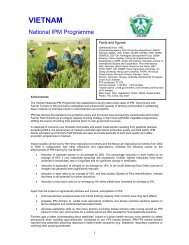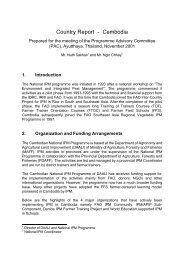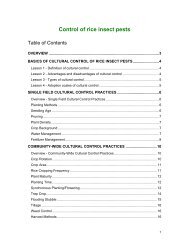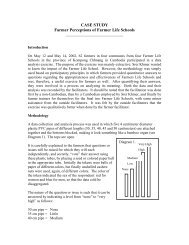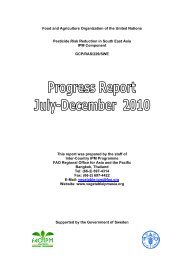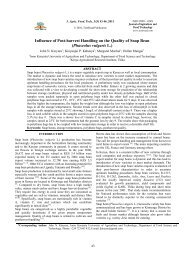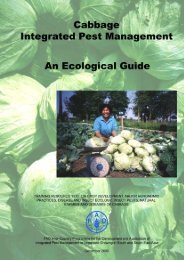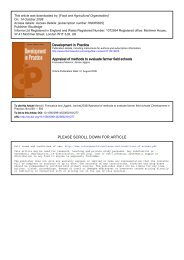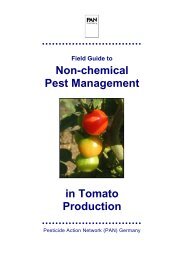- Page 2 and 3:
TABLE OF CONTENTSACKNOWLEDGEMENTSWH
- Page 5:
ACKNOWLEDGEMENTSMany people have be
- Page 8 and 9:
___________________________________
- Page 10 and 11:
___________________________________
- Page 12 and 13:
___________________________________
- Page 14 and 15:
___________________________________
- Page 17 and 18:
___________________________________
- Page 19 and 20:
___________________________________
- Page 21 and 22:
___________________________________
- Page 23 and 24:
___________________________________
- Page 25 and 26:
___________________________________
- Page 27 and 28:
___________________________________
- Page 29 and 30:
___________________________________
- Page 31 and 32:
___________________________________
- Page 33 and 34:
___________________________________
- Page 35 and 36:
___________________________________
- Page 37 and 38:
___________________________________
- Page 39 and 40:
___________________________________
- Page 41 and 42:
___________________________________
- Page 43 and 44:
___________________________________
- Page 45 and 46:
___________________________________
- Page 47 and 48:
___________________________________
- Page 49 and 50:
___________________________________
- Page 51 and 52:
___________________________________
- Page 53 and 54:
___________________________________
- Page 55 and 56:
___________________________________
- Page 57 and 58:
___________________________________
- Page 59 and 60:
___________________________________
- Page 61 and 62:
___________________________________
- Page 63 and 64:
___________________________________
- Page 65 and 66:
___________________________________
- Page 67 and 68:
___________________________________
- Page 69 and 70:
___________________________________
- Page 71 and 72:
___________________________________
- Page 73 and 74:
___________________________________
- Page 75 and 76:
___________________________________
- Page 77 and 78:
___________________________________
- Page 79 and 80:
___________________________________
- Page 81 and 82:
___________________________________
- Page 83 and 84:
___________________________________
- Page 85 and 86:
___________________________________
- Page 87 and 88:
___________________________________
- Page 89 and 90: ___________________________________
- Page 91 and 92: ___________________________________
- Page 93 and 94: ___________________________________
- Page 95 and 96: ___________________________________
- Page 97 and 98: ___________________________________
- Page 99 and 100: ___________________________________
- Page 101 and 102: ___________________________________
- Page 103 and 104: ___________________________________
- Page 105 and 106: ___________________________________
- Page 107 and 108: ___________________________________
- Page 109 and 110: ___________________________________
- Page 111 and 112: ___________________________________
- Page 113 and 114: ___________________________________
- Page 115 and 116: ___________________________________
- Page 117 and 118: ___________________________________
- Page 119 and 120: ___________________________________
- Page 121 and 122: ___________________________________
- Page 123 and 124: ___________________________________
- Page 125 and 126: ___________________________________
- Page 127 and 128: ___________________________________
- Page 129 and 130: ___________________________________
- Page 131 and 132: ___________________________________
- Page 133 and 134: ___________________________________
- Page 135 and 136: ___________________________________
- Page 137 and 138: ___________________________________
- Page 139: ___________________________________
- Page 143 and 144: ___________________________________
- Page 145 and 146: ___________________________________
- Page 147 and 148: ___________________________________
- Page 149 and 150: ___________________________________
- Page 151 and 152: ___________________________________
- Page 153 and 154: ___________________________________
- Page 155 and 156: ___________________________________
- Page 157 and 158: ___________________________________
- Page 159 and 160: ___________________________________
- Page 161 and 162: ___________________________________
- Page 163 and 164: ___________________________________
- Page 165 and 166: ___________________________________
- Page 167 and 168: ___________________________________
- Page 169 and 170: ___________________________________
- Page 171 and 172: ___________________________________
- Page 173 and 174: ___________________________________
- Page 175 and 176: ___________________________________
- Page 177 and 178: ___________________________________
- Page 179 and 180: ___________________________________
- Page 181 and 182: EGGPLANT INSECT PESTSEggplant Fruit



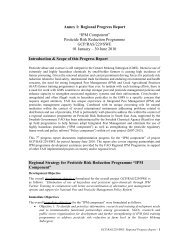
![Section 4 [ PDF file, 252 KB] - The Field Alliance](https://img.yumpu.com/51387260/1/158x260/section-4-pdf-file-252-kb-the-field-alliance.jpg?quality=85)
